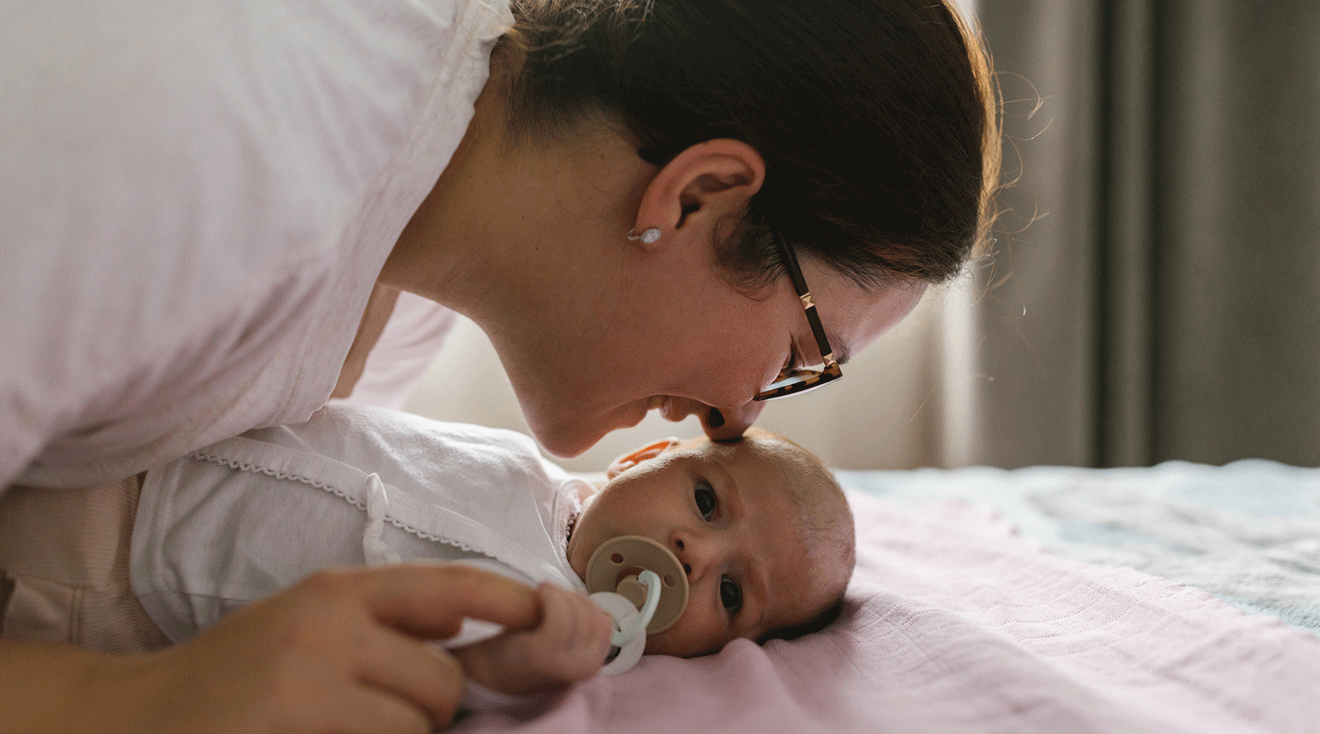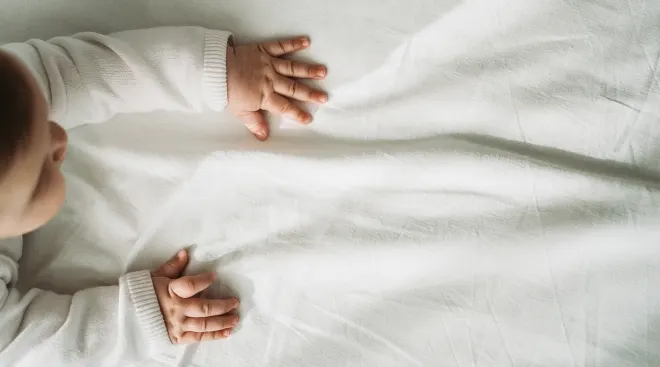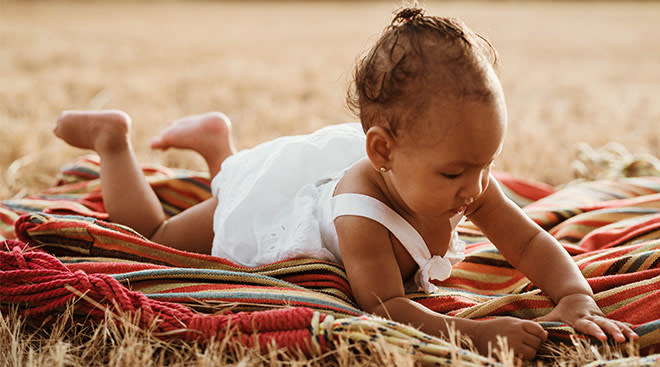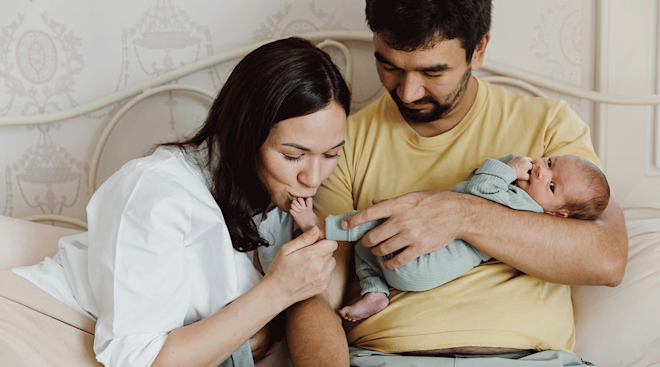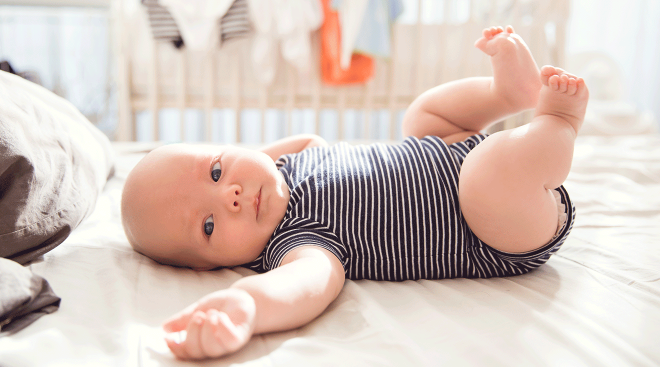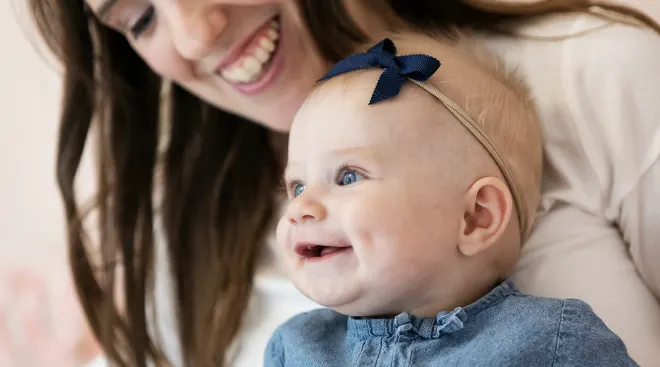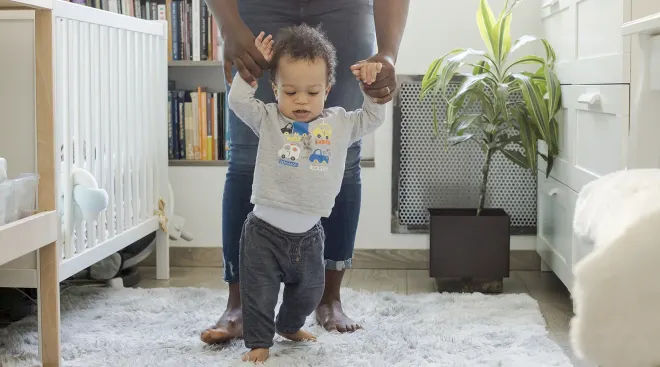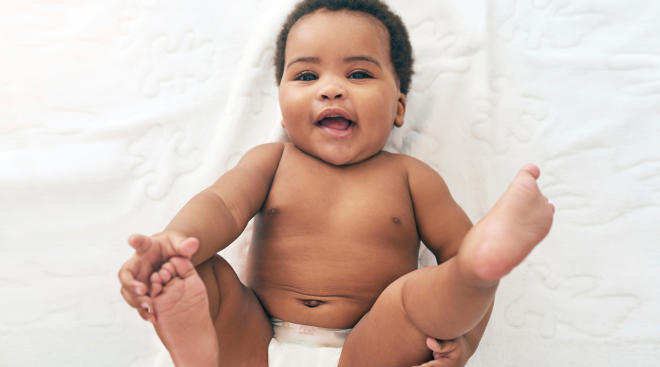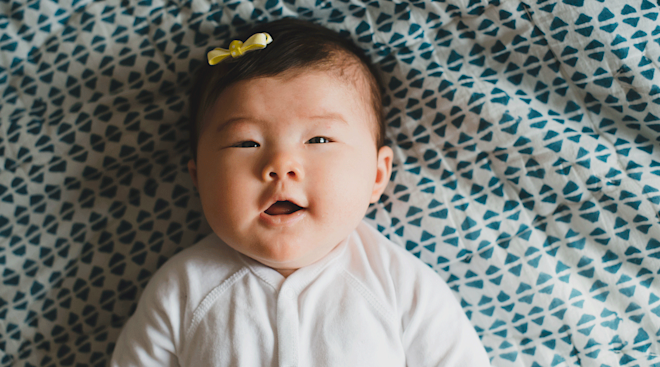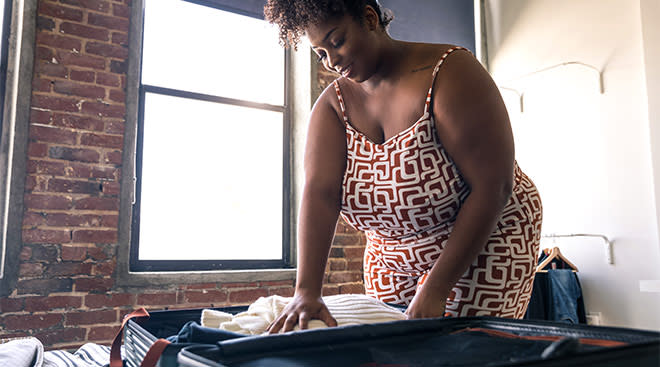Science Answers the Question "Why Do Babies Smell Good?"
Holding a newborn is a sensory delight—their warm, squishy cuteness is matched only by their heavenly new baby smell. When my daughter was first born, I remember wishing I could bottle up the whole experience. Basking in the sweet smell of your newborn baby is one of those memories you’ll want to keep with you always. But why do babies smell so good, how long does this perfection last—and is there legit science behind the often-talked-about new baby smell? Read on to get the full scoop.
The new baby smell is one of those things you have to witness to understand. It’s a smell with warmth and magic mixed in, and those who get it, get it. Rachel A., mom of one in Belleville, New Jersey, says, “When I had my son, his new baby smell was something I looked forward to smelling every day when we woke up. It’s like the smell of pure innocence, and it was something that immediately would make me feel calm and cozy.”
Chris Klunk, MD, MS, a board-certified neonatologist at Pediatrix Medical Group in Austin, Texas, knows the new baby smell better than most: “New cars have nothing on new babies when it comes to a smell to get excited about,” he says. “New babies—at least when their diapers are clean—are often described as smelling soft, sweet and clean. Something like the cross between a French bakery and warm sheets straight out of the dryer.”
There are several reasons newborns smell so good. It’s partly due to the chemical makeup of what’s in and on their body. Beyond that, they smell good because it helps them get their needs met!
Chemical composition
Part of a newborn’s baby’s scent makeup is the fluid secreted from their sweat glands. A baby’s body odor has a specific chemical recipe that makes it smell especially divine. “Researchers have looked at the chemical composition of body odor from infants and teenagers to identify why one is so pleasant and why the other is … less so,” says Klunk. “On a molecular level, the body odors of these two groups are more similar than might be expected, but key differences exist.” The chemical compounds responsible for making babies smell great likely exist to aid in maternal bonding and survival.
Skin coating
Amniotic fluid and vernix caseosa (the white substance coating a newborn’s skin) are present on baby’s skin at birth. A 2019 report concluded that amniotic fluid is responsible for part, but not all, of a newborn baby’s “essence”. Likewise, vernix also has a scent that would contribute to a brand-new baby’s smell. After you bathe your baby, these skin coatings will go away, but don’t fret—baby will still smell sweet due to the chemical makeup of their body odor.
Parental bonding
Research shows there’s a biological reason new babies smell great. According to Cherilyn Davis, MD, FAAP, a board-certified pediatrician at Elliston Pediatrics in New York, “Scientists have found that babies smell better to their parents and that this pleasantness decreases as a child ages. It’s thought that this leads to bonding and better caretaking, which isn’t as much of a necessity when children are older.” In other words, babies smell good when they’re tiny and dependent because it helps them get the care they need.
Furthermore, a 2013 study revealed that the new baby smell can support a mother’s positive feelings towards her baby. Klunk expands on the research: “Functional magnetic resonance imaging of the brains of women exposed to baby smell demonstrated a response in areas of the brain tied to reward mechanisms, supporting the long-believed notion that infant smell plays a role in maternal bonding.” He adds, “Inversely, infants are similarly drawn towards their mothers through the identification of their unique smells.”
The new baby smell is wonderful but temporary. Basically, it lasts for a good portion of the fourth trimester, which can aid in parent-baby bonding. Klunk says that the smell is likely to last several weeks to a couple months, depending on several factors. “It’s not like one day baby smells amazing and then wakes up stinky!,” he says. So make sure to soak in baby’s sweet smell while you can. Like all things new-baby cuteness, their just-born scent comes with an expiration date.
Although new babies smell amazing, there are plenty of unpleasant baby smells too. “Less good smells include dirty diapers and spit up, which may have partially digested breastmilk or formula in it, which can emit a sour smell,” says Davis. “And every now and then, the spit up can sneak into neck or body folds, so that smell may linger even after you give them a wipe.” Klunk recommends wiping baby with a warm soapy cloth and drying the skin thoroughly. “While super common, these issues are all easily addressed so your little one can go back to smelling amazing,” he adds.
Baby is attracted to the scent of their mom too. “Similar to how mothers are drawn to their infants’ smell, it has long been known that infants are drawn toward their mother through the identification of their mother’s unique natural and artificial scents,” says Klunk. So that means even on your sweatiest of postpartum days, you can rest assured baby will still be soothed by your scent. “It’s theorized that this may be an effect that helps babies feed after birth,” notes Davis.
Babies smell good because of their chemical makeup, the body coatings they’re born with, and because it aids their survival. And thank goodness! There’s nothing more soothing than a whiff of your (clean) baby when you’re sleep-deprived and recovering from childbirth. The sweet new baby smell is a biological treat that I, for one, will never forget.
Please note: The Bump and the materials and information it contains are not intended to, and do not constitute, medical or other health advice or diagnosis and should not be used as such. You should always consult with a qualified physician or health professional about your specific circumstances.
Plus, more from The Bump:
Cherilyn Davis, MD, FAAP, is a board-certified pediatrician at Elliston Pediatrics in New York. She earned her medical degree from the Sidney Kimmel Medical College in Philadelphia.
Chris Klunk, MD, MS, is a board-certified neonatologist at Pediatrix Medical Group in Austin, Texas. He earned his medical degree from the University of Massachusetts Medical School.
Nature, Sampling, identification and sensory evaluation of odors of a newborn baby’s head and amniotic fluid, September 2019
Frontiers in Psychology, Maternal status regulates cortical responses to the body odor of newborns, September 2013
Learn how we ensure the accuracy of our content through our editorial and medical review process.
Navigate forward to interact with the calendar and select a date. Press the question mark key to get the keyboard shortcuts for changing dates.
































